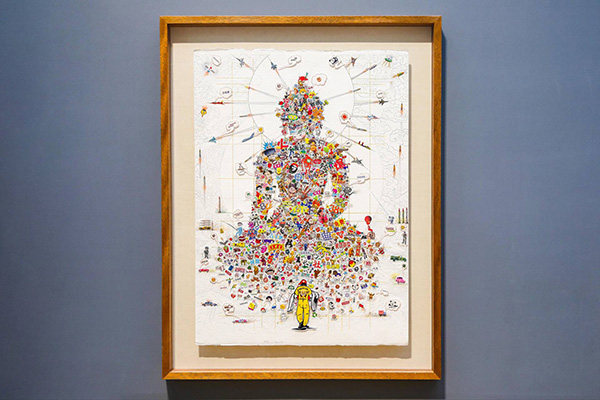 |
|
About 30 works were displayed during the exhibition organized by Tihho, a business that works to promote Tibetan art and culture outside the region.[Photo provided to China Daily] |
Innovation
However, Tan quickly discovered that while many people liked his store, few actually bought books, so he had to innovate to make a living.
In 2015, he moved the bookstore to Barkhor Street, a bustling area next to the Jokhang Temple, and upgraded the business into a multifunctional inn to attract more people.
Now, the four-story inn has 17 rooms, each designed to be a study area, plus a cafe bar and a public library to satisfy the demand for snacks and reading.
"I didn't want to give up my bookstore dream, but it needed more money. So, I offered extra services, hoping they could help support my dream business over the long term," he said.
Fang, from Tihho, has also discovered that businesses in Tibet usually require at least two revenue streams.
To that end, his company provides a platform for artists to display their work and acts as a channel to help people better understand Tibetan culture through exhibitions. It also helps local people to design and sell cultural commodities, such as jewelry, knitted fabrics and home decorations.
Promotions for activities and exhibitions both require money, "which means we have to find a way to be self-sufficient", Fang said.
In addition to the company's headquarters in Lhasa, Tihho has built an arts and cultural center in Shanghai, and in the past five years it has also opened five gift shops selling Tibetan artworks and cultural goods in the two cities.
The items "help people to better understand Tibet and also contribute to keeping our business sustainable", Fang said.